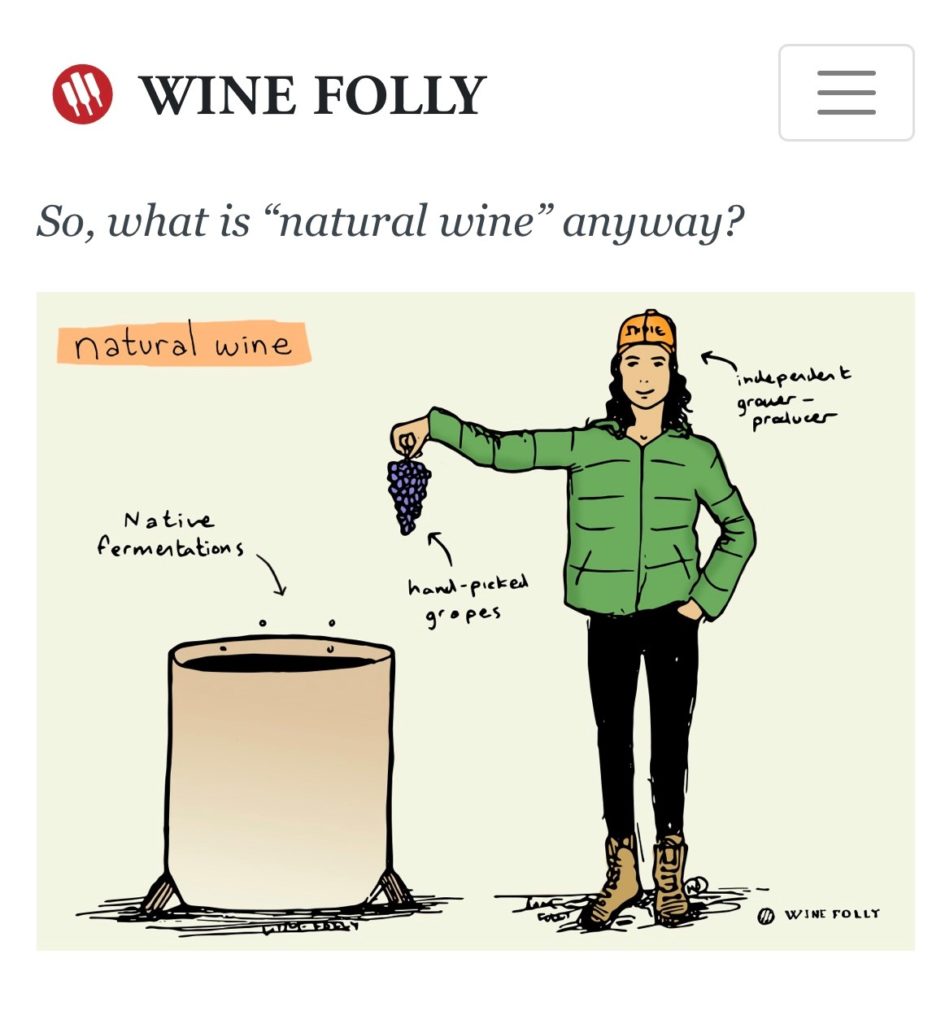You may have heard some wines referred to as “natural” recently and wondered, about what that meant. I mean, isn’t all wine a natural product made from grapes?
My daughter Elise visited reecently and brought me the bottle above, an Italian natural wine, from a store in New York that has a whole section just for natural wines. It is really taking off as a market segment, and for many good reasons, the same way artisanal cheeses are popular and we enjoy farm to table cuisine. The number of producers making natural wine is growing, and a lot of these are younger winemakers who are interested in preserving traditions and techniques from the past that honor the land and the culture.
These are low-intervention wines, meaning the winemaker let nature do a lot of the work rather than adding to or adjusting the wine during the winemaking process. Natural wines are not only interesting, they are enjoyable to drink.
If you are buying a natural wine, it is more than likely made from grapes that are from an organic, biodynamic or sustainable vineyard. Also, since most are made by smaller producers using a lot of old-time, traditional methods, you are supporting independent agriculture versus large corporations that may practice not as sustainable viticulture. If you like to go to the farmers market for your fruits, veggies and other foods, you probably will want to try natural wines.
Natural winemakers believe in low-intervention and letting Mother Nature do the work:
- Grapes are grown using little or no pesticides and fungicides, and often use natural techniques like predators to kill pests that can harm the vines or fruit.
- Often grapes will be hand-harvested rather than picked by machines. This often allows for whole bunches of grapes to be harvested and for the vineyard workers to sort out the lesser quality or rotten grapes to be skipped.
- Wine is fermented with no added yeast (they use the ambient yeast that exists in the environment rather than adding in or “inoculating” the grape must with commercial yeast to start fermentation).
- Usually wines are unfiltered, often no additives are used and very little or no sulfur dioxide is added to the wine. While this can make the wine less stable, as SO2 is an antioxidant and antimicrobial, it does make it easier to tolerate if you have sensitivities to sulfites.
If you want to know more about the concept of natural wine, read this article in Wine Folly that defines natural wine. (BTW if you have not purchased and read any of the wine Folly books about wine or subscribed to their newsletter, it is a great resource). Click the link here to read the article.
Also, there’s an interesting book I’m just starting to read called Natural Wine For The People by Alice Feiring. It is “a compact illustrated guide to the emerging and enormously popular category of natural wine, a style that focuses on minimal intervention, lack of additives, and organic and biodynamic growing methods.”
Good stuff, good wine. Cheers!

Note: unlike organic or biodynamic wine producers, which have been certified by organizations like the USDA and Demeter, there is no regularity body for the “natural wine” designation. It is a way to sate a kind of winemaking process and philodophy and may mean different things to different wine makers.



